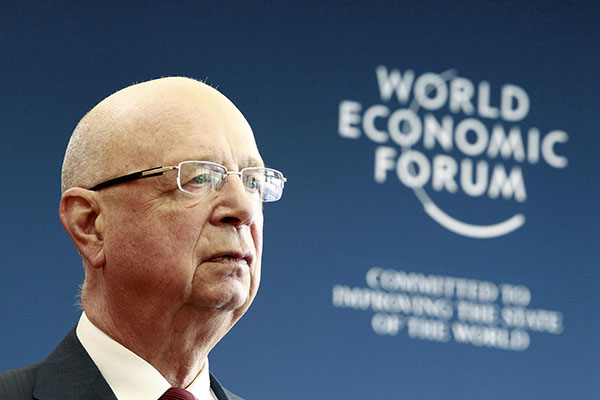 |
|
World Economic Forum (WEF) Executive Chairman and founder Klaus Schwab addresses a news conference in Cologny, near Geneva, January 14, 2015, to announce the programme for its annual Davos meeting. [Photo/Agencies] |
LONDON - The risk of international conflict is now the biggest threat facing countries and businesses in the coming decade, trumping concerns about the economy, the World Economic Forum said on Thursday.
The group's annual assessment of global hazards sets the scene for its meeting in Davos next week, although it is based on responses received some months ago. It is the first time the survey has headlined conflict as the top risk, reflecting an increasingly dangerous world.
The previous nine editions of the Global Risks report have tended to highlight economic threats such as fiscal crises, the collapse of asset prices and widening income disparity.
This time, economics have taken a relative backseat as nearly 900 experts in the survey fretted over the pro-Russian separatist uprising in Ukraine, the dramatic rise of the Islamic State militant group and other geopolitical flashpoints.
"It's very striking how geopolitical risks have shot up much more strongly than other risks," said Margareta Drzeniek-Hanouz, the World Economic Forum's (WEF) lead economist.
In addition to fears over major clashes between states, the means to wage conflict are changing, with the arrival of cross-border cyberattacks, drone strikes and the increased use of economic sanctions.
Since the survey was conducted, the economic picture has clouded significantly, with oil tumbling below $50 a barrel, the euro zone lurching into deflation and copper prices crashing this week as the World Bank cut its global growth forecast.
"We're still not out of the woods yet in terms of the economic recovery," said Drzeniek-Hanouz.
Economic concerns among experts did not diminish year-on-year but were simply overtaken by geopolitical issues, she added.
Other major risks in terms of their likelihood of occurring include extreme weather events, the failure of states and governments, and continuing high structural unemployment, the report found.
The WEF's key opinion formers also rank risks in terms of the scale of their impact, rather than likelihood, and on this basis water crises and the rapid spread of infectious diseases come out as top dangers.
In all, the 80-page report analysed 28 global risks for the next 10 years. It comes ahead of the WEF's annual meeting in the Swiss ski resort of Davos from Jan. 21 to 24, where the rich and powerful will ponder the planet's future.
Bringing together business leaders, politicians and central bankers, Davos has come to symbolise a modern globalised world dominated by successful multinational corporations.
That has made it a target for anti-globalisation campaigners, although the WEF argues it includes a wide range of voices from labour groups to religious leaders.
 Overhauling China's organ transplant system could take some time
Overhauling China's organ transplant system could take some time
Overhauling China's organ transplant system could take some time
